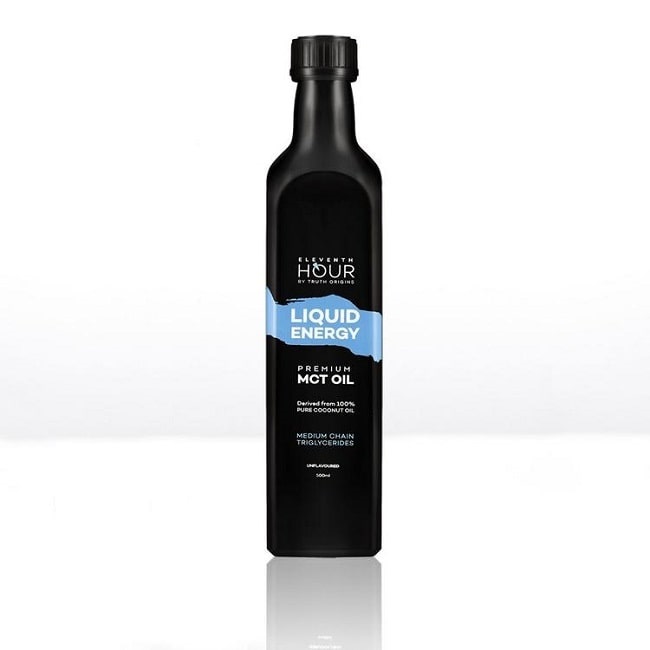1
HOME > Health & Fitness >
FASTING & AUTOPHAGY FOR WEIGHT LOSS & DISEASE PREVENTION
Written by Dr. Harrison Weisinger in Health & Fitness on the 22nd December 2020

Let’s face it, most diets fail in the long term because of hunger. Of course, hunger is no small issue! It’s one of the most powerful drives that we experience. Think about the last time you were really hungry. Were you able to think, work or even play? I doubt it… The vast majority of diet programs out there today use caloric restriction (i.e. eating less) as the sole means of losing weight. Caloric restriction is very effective – and should be part of the armoury of weight management and health-promotion – but it invariably gives rise to hunger and the inevitable slippery slope of weight regain.
This is where intermittent fasting and high-fat diets come in – these dietary programs have provided people that were previously unable to sustainably lose weight with options that actually work. They work predominantly because they enable you to eat fewer calories without feeling hungry! The classical ketogenic diet is a high-fat, low-to-moderate protein, very low carbohydrate diet. As much as 90% of calories in a ketogenic diet come from fats such as olive oil, butter, avocado, cheese, fatty fish, etc.

Many, however, find such a high proportion of fat extremely difficult to achieve which is why a modified ketogenic diet (65% fat, 30% protein, 5% carbohydrates) often gives better success overall. In fact, many on a modified ketogenic diet with the addition of MCT oil, have a higher ketone level in their blood than if they were consuming the classical 90% fat diet! To understand the significance of this, we first need to understand a little bit more about ketones and MCT oil. For those unfamiliar, you can think about ketones as a type of fuel that the body uses for energy. Other fuels you’d be familiar with are glucose (the simplest carbohydrate) and fatty acids. When glucose is available (either in the blood from a recent meal or from storage), it is the preferred fuel of pretty much every tissue in the body (especially the brain and skeletal muscles). A ketogenic diet deprives the body of glucose, so it is forced to use other forms of fuel (and though the liver continues to make glucose, this small amount is reserved for the brain) such as fatty acids and ketones. Fatty acids can’t enter the brain, but they are used by muscle and importantly, converted into ketones – which can be used by the brain!

It takes a few days on a ketogenic diet to build up the ability to make ketones from fatty acids, which is why many people experience a lack of energy and brain-fog in the initial period. But, once your liver is able to make ketones, you’re away – and you can then experience all of the fat-burning, bloat-reducing, mind-clarifying benefits of the ketogenic diet! The other ways to increase the number of ketones in the blood are to:
#1 consume ketones (so-called ‘exogenous’ ketones) and;
#2 consume MCT oil.
If fasting is on your radar then you may have heard the term Autophagy being thrown around, so what is Autophagy and why is it different to fasting? The word (auto: self, phage: eat) literally means to eat itself. In very basic terms, it’s our cell’s recycling process. It provides fuel for energy and building blocks for cell renewal. The key difference between intermittent fasting and autophagy is the intention behind it. Typically the people who fast do so for weight management, the people who attempt to trigger autophagy are doing so for disease protection.

Numerous studies in mice have shown that fasting results in autophagy in many different organs including the brain and liver and that the process of autophagy is beneficial in protecting against excessive inflammation. Important to point out here that very little studies have been done in humans and the sparse data we do have is a little conflicting. Autophagy is happening all the time in our bodies whether we’re fasting or not. As far as increasing the process of Autophagy for disease prevention goes, as I mentioned before, the research is still in its infancy, but watch this space. What we do know is the decades of research on fasting alone should be enough to encourage people to try. Fasting, be it for a prolonged period (say 1-7 days) or in the form of time restricted eating (e.g. 16 hours fasting and 8 hours during which to eat each day) leads to reduced inflammation, and improved immune function. Combining eating good food with periodic or intermittent fasting is an excellent way to promote both immunity and longevity.

Trending
2
3
4
5
6
7
8
9
10









